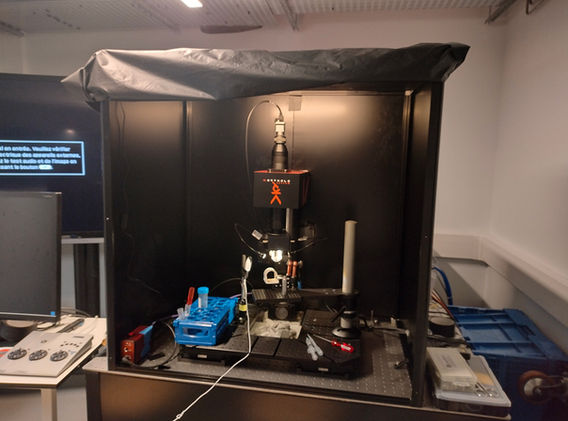
PASTEUR COURSE
Hearing: from mechanisms to restoration technologies (HeaR)
The Hearing Institute organizes a yearly course on forefront research in Hearing Research and Neuroscience. Over 13 days, this theoretical and practical course addresses the mechanisms of auditory perception from the ear to the brain, their disorders and modern methods for repairing auditory function. In a dynamic environment, the HeaR course alternates between lectures given in English by internationally recognized specialists and applications during hands-on sessions.
Accessible from the master level, the course has been designed both for hearing practitioners wishing to complement their knowledge and for young researchers (PhD students, post-docs) or engineers wishing to pursue a career in the field of hearing research. Attendees will learn about fundamental concepts in Hearing and will receive an overview of recent discoveries in basic and clinical research.
Practical information
Course language: English
Location: Institut de l’Audition (IdA), 63 rue de Charenton, 75012 Paris
Dates: June 3, 2024 - June 14, 2024
Registration: deadline March 15, 2024
General:
-
The registration must be done through the myPE platform of the Pasteur institute. You need to validate the full registration process before the deadline to be considered for the course. At this point you do not need to pay the tuition fees. Then a selection of the students will be made by the course supervisors based on motivation and profile. You will receive an email indicating if you are accepted to the course within a week after the registration deadline. If you are accepted, the registration will be finalized, including payment of the registration fee (note that master students of the University Paris Cité are entitled to a full waiver of registration fees if they are selected – see below).
-
You will find the link to the registration platform on this page (Online registration button).
-
If you have never followed a course at Institut Pasteur, please first create an account on myPE by selecting the ‘You do not have an account?’ option.
-
Then log into myPE and follow the instructions.
-
The process includes selecting your profile (private company, if the course is financed by your company, academic, if you work in a public institution which pays your fees, student, if you are enrolled in a PhD or master program, self-financing, if you pay the course fees with your personal budget and are not a student).
-
The select the course and provide all necessary information and documents.
-
Don’t forget to validate your application to be considered for the course selection.
Academics or Public Institution (Postdoc, researcher, engineer)
1575 euros
Private company
3150 euros
No affiliation (self-financing)
1575 euros
PhD or Master Students
630 euros
Master students at the University Paris-Cité (Cogmaster, Master BME)
Full waiver from tuition fee.
To obtain it please contact the course directors.
Directors of the course
-
Brice Bathellier (brice.bathellier@pasteur.fr)
-
Boris Gourevitch (boris.gourevitch@pasteur.fr)
Head of practical courses
-
Sandrine Vitry (sandrine.vitry@pasteur.fr)
Typical day
Morning 9-12am: Course
Afternoon 2-6pm: Practical
Course contents
-
Day 1: Acoustics, signals and anatomy
-
Day 2: Auditory perception and psychoacoustics
-
Day 3: Mechano-electric transduction and amplification
-
Day 4: Auditory impairments and cochlear implant
-
Day 5: Synaptic transmission in the auditory system & organoïds
-
Day 6: From molecules to functions
-
Day 7: Central auditory system
-
Day 8: Cortical circuits and plasticity
-
Day 9: Auditory cognition and communication: predictive and emotional processing
-
Day 10: Perspectives
Practicals
-
Introduction to programming of sound synthesis, delivery, and recording
-
Auditory perception experiments
-
Auditory Brainstem Responses, Otoacoustic emissions and distortion products.
-
Audiovestibular deficits in transgenic mice
-
Field recordings electrophysiology (EEG) in humans, experiments, and data analysis
-
Simulation of a surgery with a robot or a virtual simulator
-
Dissection of the cochlea, staining and imaging, confocal microscopy
-
Two-photon imaging in vivo and data analysis
-
Artificial intelligence applied to images, sounds, music





